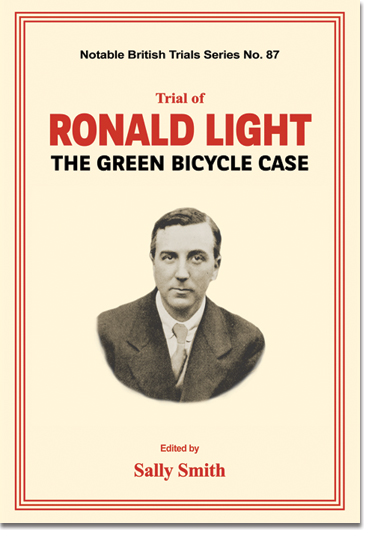
Death by gunshot. That was the somewhat belated opinion of the doctor who examined Bella Wright’s body. Death by gunshot in a lonely Leicestershire lane, on the evening of 5 July 1919.
Initially, police enquiries failed to disperse the shadows which enveloped the case. Bella – a free-spirited twenty-one year old – had been seen shortly before her death with a man, cycling the roads outside Leicester, but that man had vanished into nothingness. No trace of him could be detected.
Months went by before the fortuitous discovery of the clue – a dismantled green bicycle lying on the bed of a canal – which would lead the police to their elusive suspect. Ronald Light, the bicycle’s erstwhile owner, was arrested and charged with Bella’s murder.
And yet, in some ways, this was only the beginning of the mystery. Who was Light? What had he endured in France during the war? Had he returned to peaceful society traumatised and weaponised? And, if so, what, if anything, firmly connected him to the tragedy in the twilit lane?
The trial, which began at Leicester Castle on 9 June 1920, was illuminated by the creative and daring defence set up by Sir Edward Marshall Hall – a performance much admired by a young Norman Birkett, who was appearing for the prosecution. But would Light obtain the benefit of any doubts which Marshall Hall managed to place in the minds of the jury? Or would he find himself tangled forever in the threads of the prosecution’s circumstantial case?
Sally Smith QC was called to the Bar in 1977 and became a QC in 1997. After early years in general common law including crime, she went on to specialise in medical law appearing in many of the high profile medical cases of the last two decades. She now writes full time. Her first book published in 2016 was a critically acclaimed biography of Sir Edward Marshall Hall KC, defence counsel in the green bicycle murder trial and perhaps the greatest advocate England has ever produced.
In this centenary year of the Green Bicycle murder case, this book reproduces the testimony given at the trial, together with an introduction, a chronology and appendices.